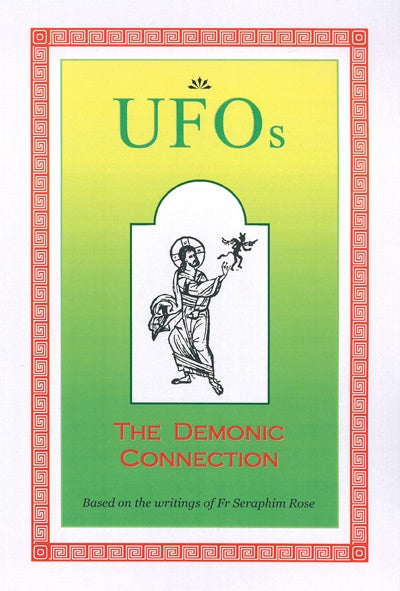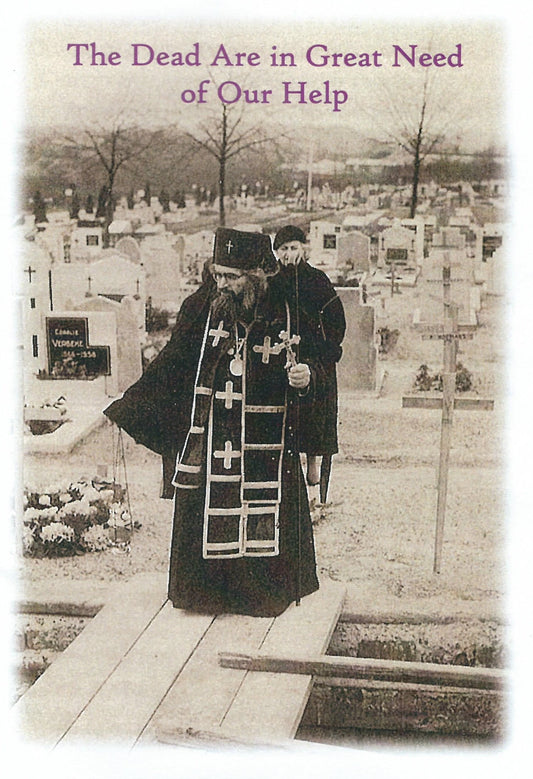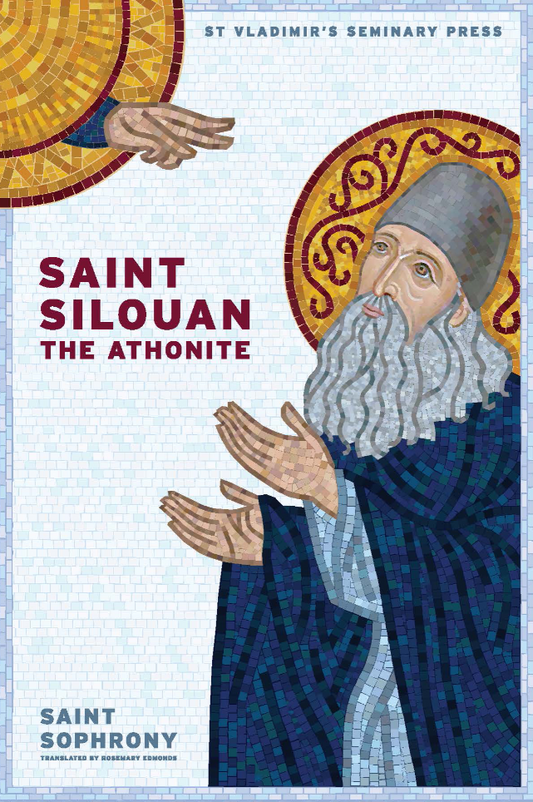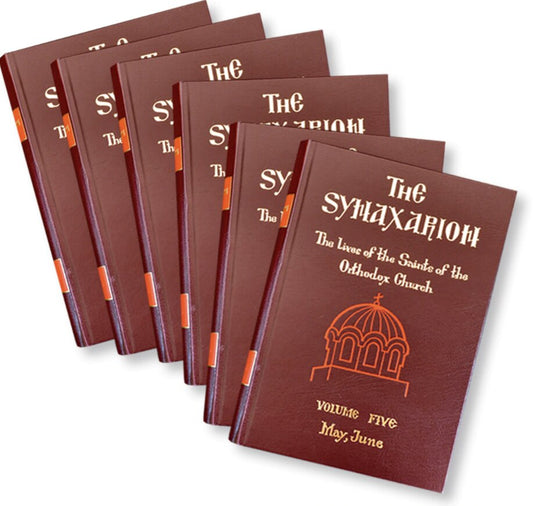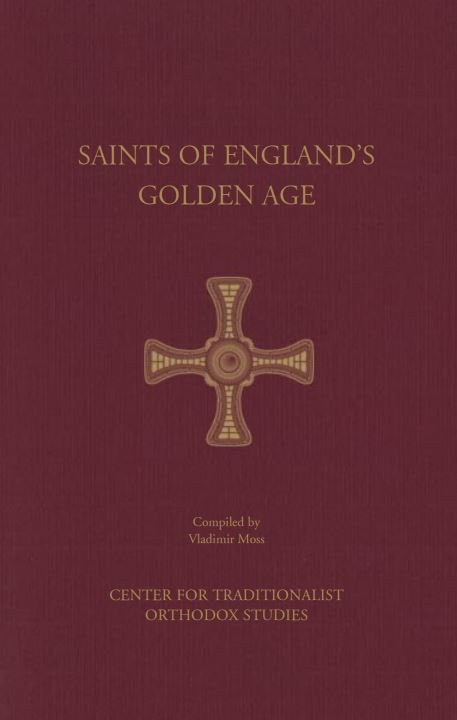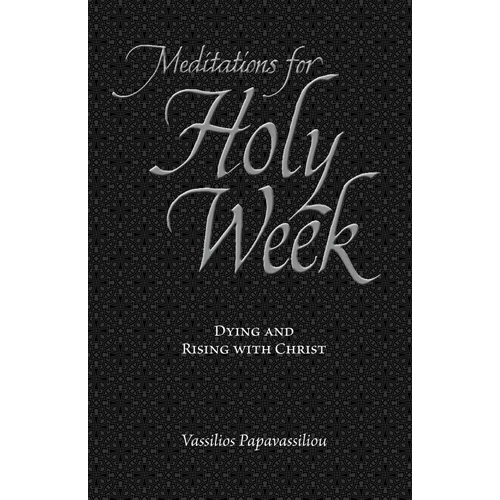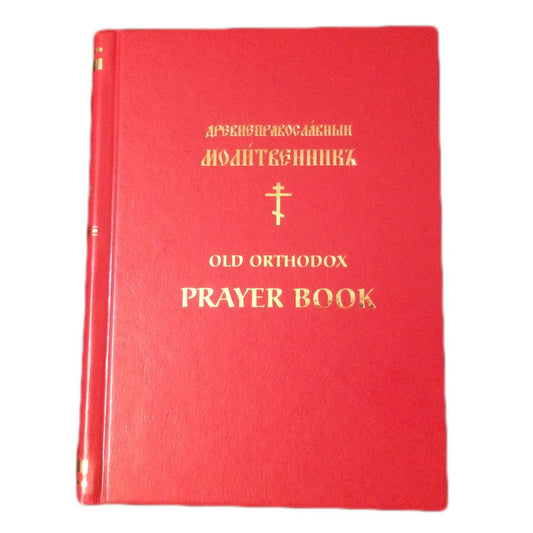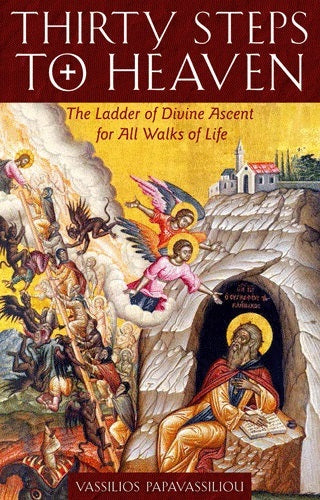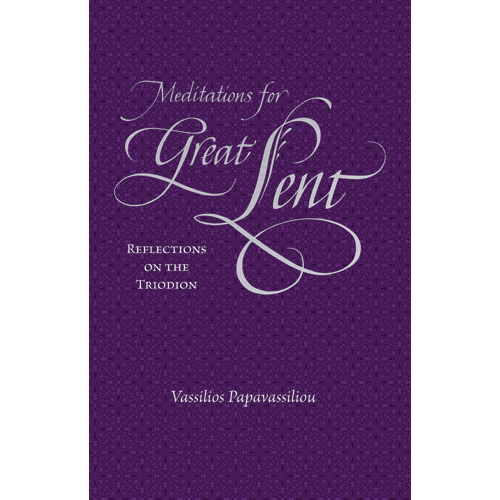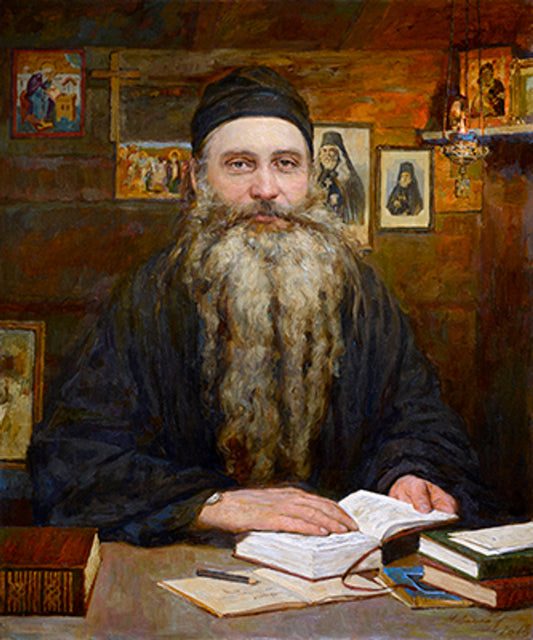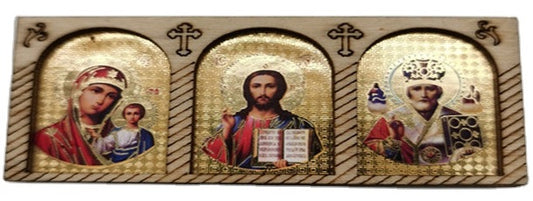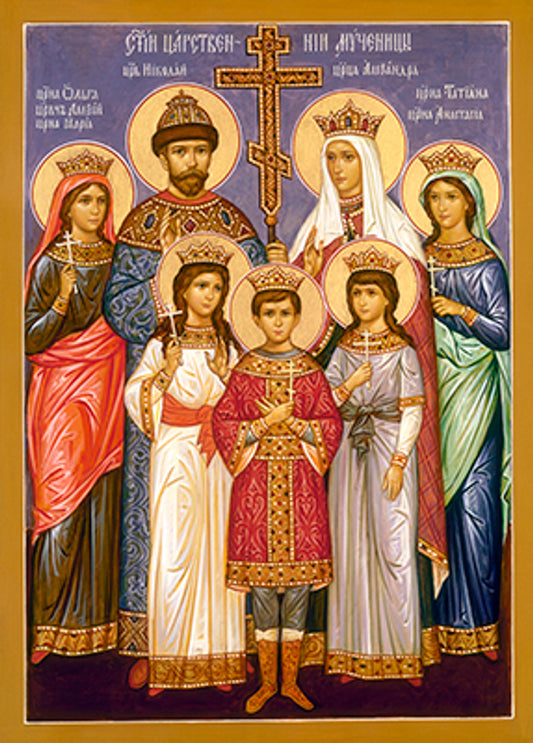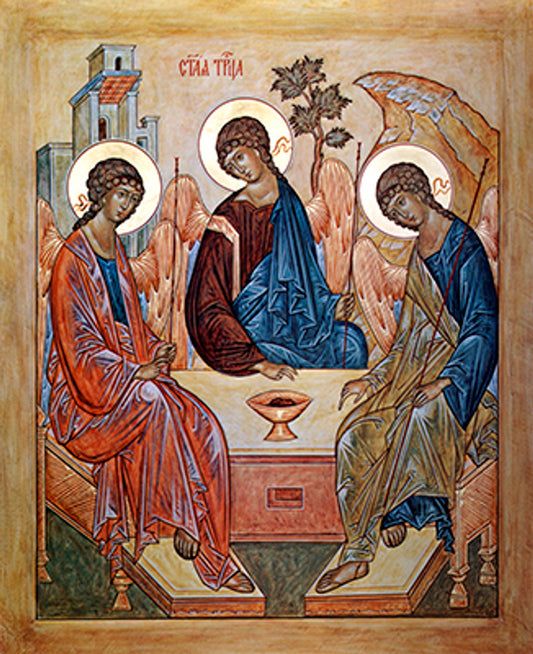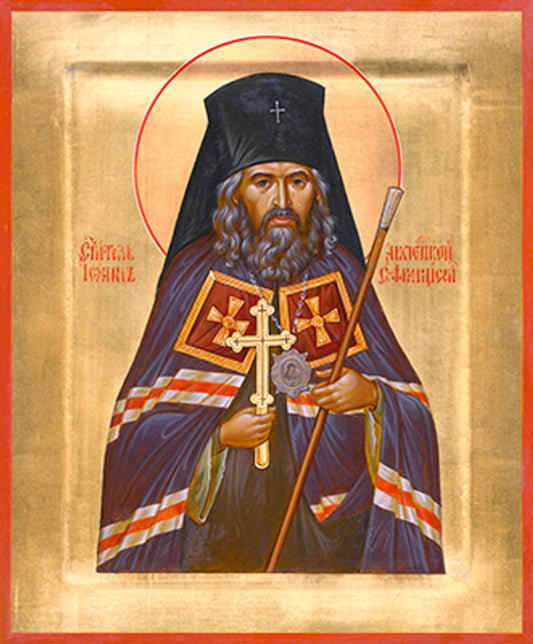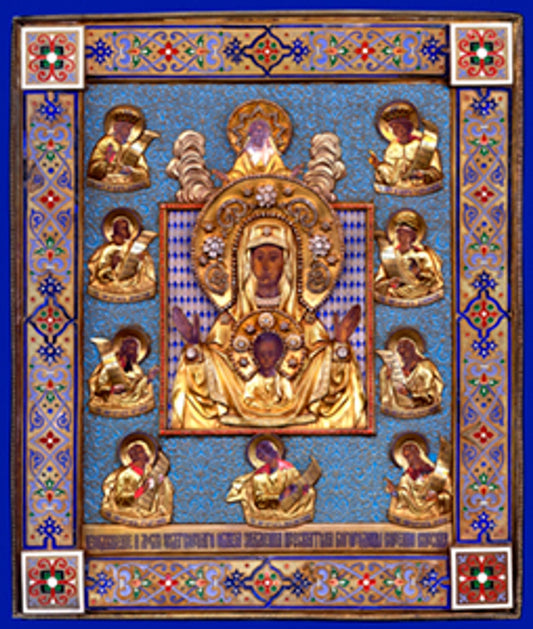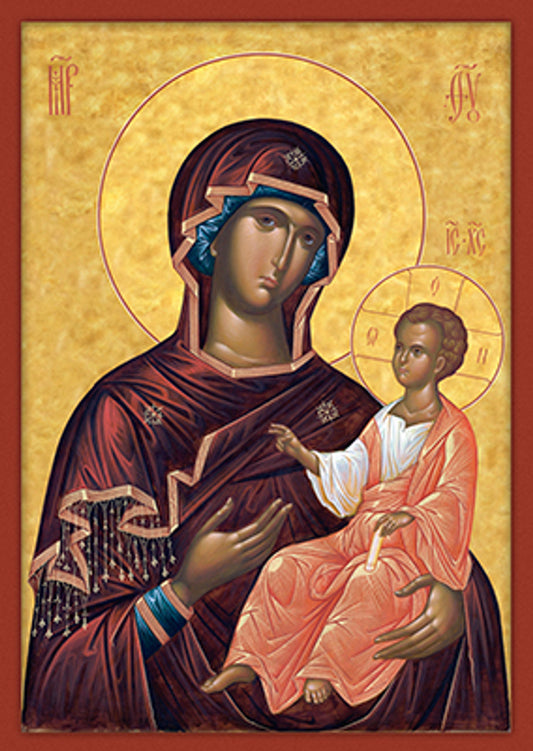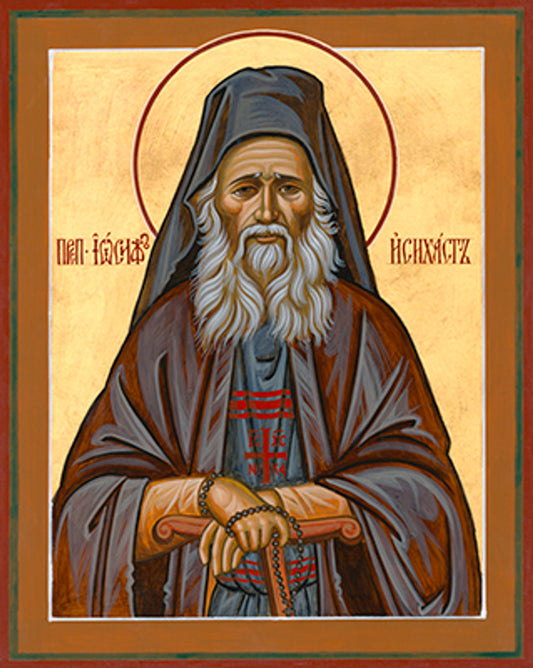
1
/
of
10
HTM Apiary
Monastery Raw Honey
Regular price
$18.00
Regular price
Sale price
$18.00
Unit price
/
per
Shipping calculated at checkout.
Share
Just Arrived!
-
UFOs: The Demonic Connection
Regular price $10.00Regular priceUnit price / per -
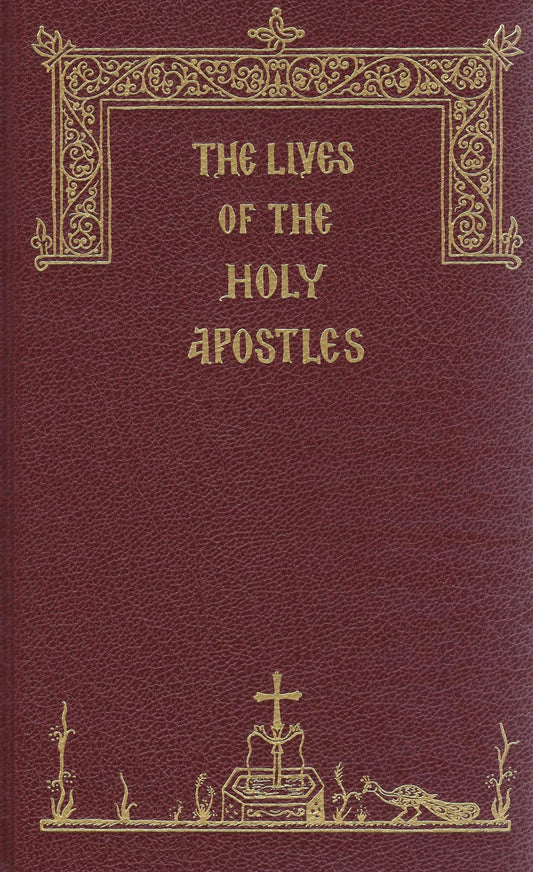 Sold out
Sold outThe Lives of the Holy Apostles
Regular price $26.00Regular priceUnit price / per -
Healing the Soul: Saint Porphyrios as a Model for Our Lives
Regular price $17.00Regular priceUnit price / per -
The Dead Are in Great Need of Our Help
Regular price $4.00Regular priceUnit price / per -
St. John of Kronstadt Mounted Jordanville Icon
Regular price From $25.00Regular priceUnit price / per -
Hand Censer 08
Regular price From $16.50Regular priceUnit price / per -
Enduring Love: Laying Christian Foundations for Marriage
Regular price $30.00Regular priceUnit price / per -
Saint Silouan, the Athonite
Regular price $33.00Regular priceUnit price / per -
The Synaxarion: The Lives of the Saints of the Orthodox Church (Complete 7 Volume Set)
Regular price $350.00Regular priceUnit price / per -
Sts. Sophia and Daughters Mounted Jordanville Icon
Regular price From $25.00Regular priceUnit price / per$40.00Sale price From $25.00Sale -
Saints of England's Golden Age
Regular price $13.95Regular priceUnit price / per -
A Child’s Guide to Prayer
Regular price $19.25Regular priceUnit price / per -
Hand Censer 24
Regular price From $18.50Regular priceUnit price / per -
Current Issues in the Orthodox Church: Book 1
Regular price $10.00Regular priceUnit price / per -
Meditations for Holy Week: Dying and Rising with Christ
Regular price $13.50Regular priceUnit price / per -
St. John the Baptist Mounted Jordanville Icon
Regular price From $25.00Regular priceUnit price / per -
Old-Rite Orthodox Prayer Book
Regular price $35.00Regular priceUnit price / per -
Thirty Steps to Heaven: The Ladder of Divine Ascent for All Walks of Life
Regular price $18.95Regular priceUnit price / per -
Meditations for Great Lent: Reflections on the Triodion
Regular price $9.95Regular priceUnit price / per -
Commemoration Book - Our Lord Jesus Christ
Regular price $7.50Regular priceUnit price / per -
Candle Holder 05
Regular price $19.50Regular priceUnit price / per -
Explanation of James
Regular price $17.30Regular priceUnit price / per -
Violet - Jordanville Incense
Regular price From $4.00Regular priceUnit price / per$6.00Sale price From $4.00Sale -
Explanation of Hebrews
Regular price $21.95Regular priceUnit price / per -
Prosphora Dough Cutting 02
Regular price $30.00Regular priceUnit price / per
Discounted Items
-
Calendar of Liturgical Seasons 2025 (Julian version, old calendar)
Regular price $6.00Regular priceUnit price / per$24.00Sale price $6.00Sold out -
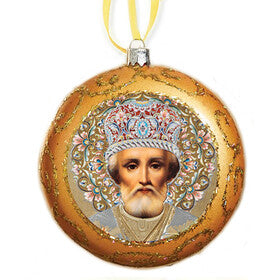 Sold out
Sold outSt. Nicholas Icon Ornament 1
Regular price $2.25Regular priceUnit price / per$9.00Sale price $2.25Sold out -
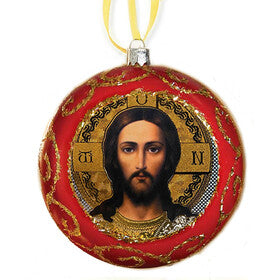 Sold out
Sold outChrist Pantocrator Icon Ornament 1
Regular price $2.25Regular priceUnit price / per$9.00Sale price $2.25Sold out -
Air freshener for car - Crown
Regular price $7.50Regular priceUnit price / per$15.00Sale price $7.50Sale -
Jordanville Cathedral Glass Engraving
Regular price $32.00Regular priceUnit price / per -
Iconostasis with Electric Lamp: Christ and the Theotokos 1
Regular price From $26.00Regular priceUnit price / per$52.00Sale price From $26.00Sale -
St. Spyridon, Small Icon, Silver border
Regular price $6.25Regular priceUnit price / per$25.00Sale price $6.25Sold out -
St. Panteleimon, Silk Screen Icon on Wood
Regular price $19.75Regular priceUnit price / per$39.50Sale price $19.75Sold out -
 Sale
SaleCeramic Lampada 03
Regular price From $11.25Regular priceUnit price / per$15.00Sale price From $11.25Sale -
St. John the Baptist, Small Icon, Silver border
Regular price $6.25Regular priceUnit price / per$25.00Sale price $6.25Sold out
Bestselling Icons
-
Theotokos (Iveron-Hawaii) Mounted Jordanville Icon
Regular price From $18.00Regular priceUnit price / per$40.00Sale price From $18.00Sale -
Christ (Saver of Souls) Mounted Jordanville Icon
Regular price From $25.00Regular priceUnit price / per -
Fr. Seraphim Rose Mounted Jordanville Portrait
Regular price From $25.00Regular priceUnit price / per$40.00Sale price From $25.00Sale -
Triptych for Car 03
Regular price $3.95Regular priceUnit price / per -
Royal Martyrs Mounted Jordanville Icon
Regular price From $25.00Regular priceUnit price / per -
Old Testament Holy Trinity Mounted Jordanville Icon
Regular price From $25.00Regular priceUnit price / per -
St. Mary of Egypt Mounted Jordanville Icon
Regular price From $25.00Regular priceUnit price / per -
Guardian Angel Mounted Jordanville Icon
Regular price From $25.00Regular priceUnit price / per -
St. John of San Francisco Mounted Jordanville Icon
Regular price From $25.00Regular priceUnit price / per -
St. Xenia Mounted Jordanville Icon
Regular price From $25.00Regular priceUnit price / per -
Theotokos (Kursk Root) Mounted Jordanville Icon
Regular price From $25.00Regular priceUnit price / per -
St. Seraphim of Sarov Mounted Jordanville Icon
Regular price From $25.00Regular priceUnit price / per -
Theotokos (Saver of Souls) Mounted Jordanville Icon
Regular price From $22.00Regular priceUnit price / per$25.00Sale price From $22.00Sale -
Theotokos (Iveron-Montreal) Mounted Jordanville Icon
Regular price From $18.00Regular priceUnit price / per$40.00Sale price From $18.00Sale -
New Martyrs of Russia Mounted Jordanville Icon
Regular price From $25.00Regular priceUnit price / per -
Triptych for Car 02
Regular price $3.95Regular priceUnit price / per -
St. Joseph the Hesychast Mounted Jordanville Icon
Regular price From $25.00Regular priceUnit price / per -
St. Elizabeth the New-Martyr Mounted Jordanville Icon
Regular price From $25.00Regular priceUnit price / per -
Triptych for Car 01
Regular price $4.95Regular priceUnit price / per -
St. George - Byzantine Icon
Regular price $12.00Regular priceUnit price / per -
Triptych for Car 08
Regular price $5.75Regular priceUnit price / per -
Archangel Michael Mounted Jordanville Icon
Regular price From $25.00Regular priceUnit price / per -
Russian Icon: St. Paisios of Mount Athos
Regular price $15.00Regular priceUnit price / per -
St. Paisios of Mount Athos Mounted Jordanville Icon
Regular price From $25.00Regular priceUnit price / per -
Theotokos (Of the Sign) Canvas Mounted Icon
Regular price From $38.00Regular priceUnit price / per
Baptismal Crosses, etc.
-
Wooden Pendant Cross 01
Regular price $5.00Regular priceUnit price / per$7.50Sale price $5.00Sale -
 Sold out
Sold outTheotokos Necklace in Velvet Box 01
Regular price $16.00Regular priceUnit price / per$32.00Sale price $16.00Sold out -
Metallic Ring 01 - Jesus Prayer (Greek)
Regular price $9.00Regular priceUnit price / per -
Sterling Silver Cross 393
Regular price $15.00Regular priceUnit price / per -
Sterling Silver Chain 925
Regular price From $45.00Regular priceUnit price / per -
Sterling Silver Cross 541
Regular price $14.00Regular priceUnit price / per -
 Sold out
Sold outWooden Baptismal Cross 18
Regular price $4.00Regular priceUnit price / per -
 Sold out
Sold out -
Metallic Ring 01 - Cross
Regular price $11.00Regular priceUnit price / per -
Soldier Cross™ Sterling Silver with Blue Enamel
Regular price $74.00Regular priceUnit price / per
Prayer Ropes
-
50-Step Leather Lestovka Prayer Rope
Regular price $40.00Regular priceUnit price / per -
50-knot Prayer Rope 01
Regular price From $7.32Regular priceUnit price / per -
Black Ebony Wrist Prayer Rope with Accents
Regular price $13.00Regular priceUnit price / per -
 Sold out
Sold out100-knot Black Prayer Rope 02
Regular price $12.00Regular priceUnit price / per -
Black Ebony Wrist Prayer Rope
Regular price $11.00Regular priceUnit price / per -
Black Ebony 33-Bead Prayer Rope
Regular price $15.00Regular priceUnit price / per -
Black Ebony 100-Bead Prayer Rope
Regular price $21.00Regular priceUnit price / per -
Black Ebony Finger Prayer Rope
Regular price $4.00Regular priceUnit price / per -
WW - 33 Bead Wooden Prayer Rope, Gold Cross
Regular price $6.75Regular priceUnit price / per -
Bethlehem Olive Wood 100-Bead Prayer Rope
Regular price $29.00Regular priceUnit price / per -
33-knot Prayer Rope w/ Single Bead
Regular price $18.68Regular priceUnit price / per -
33-knot Satin Prayer Rope w/ Mother of God Cross Bead
Regular price $18.00Regular priceUnit price / per -
33-knot Prayer Rope w/ Accents
Regular price $19.25Regular priceUnit price / per -
WW 100 Bead Black Wooden Prayer Rope, Metal Cross
Regular price $10.00Regular priceUnit price / per -
WW 50 Bead Wooden Prayer Rope, Antique Gold Small Metal Cross
Regular price $8.50Regular priceUnit price / per
Candles
-
7-day Vigil Candle
Regular price $4.95Regular priceUnit price / per -
2A: Bundle of Candles
Regular price $19.95Regular priceUnit price / per -
Votive Candles - Box of 6
Regular price $15.95Regular priceUnit price / per -
1B: Bundle of Candles
Regular price $19.95Regular priceUnit price / per -
3E-18: Bundle of Candles
Regular price $19.95Regular priceUnit price / per -
2B: Bundle of Candles
Regular price $19.95Regular priceUnit price / per -
 Sold out
Sold outGlass for votive candles
Regular price From $2.50Regular priceUnit price / per -
3B: Bundle of Candles
Regular price $19.95Regular priceUnit price / per -
Tealights in Plastic Cups (pack of 10) (candles)
Regular price $11.95Regular priceUnit price / per -
2C: Bundle of Candles
Regular price $19.95Regular priceUnit price / per
Incense
-
Roll of 33mm Three Kings Charcoal
Regular price $3.50Regular priceUnit price / per -
Holy Cross Incense - Old Church
Regular price From $10.00Regular priceUnit price / per -
Holy Cross Incense - Byzantium
Regular price From $9.00Regular priceUnit price / per -
Box of 40mm Three Kings Charcoal
Regular price $33.00Regular priceUnit price / per -
Box of 33mm Three Kings Charcoal
Regular price $22.00Regular priceUnit price / per -
Roll of 40mm Three Kings Charcoal
Regular price $4.00Regular priceUnit price / per -
Holy Cross Incense - Catacombs
Regular price From $10.00Regular priceUnit price / per -
St. Elizabeth Incense - Sarov Forest
Regular price From $15.40Regular priceUnit price / per -
Holy Cross Incense - Damask Rose
Regular price From $10.00Regular priceUnit price / per -
 Sold out
Sold outHoly Cross Incense - Bethlehem Rose
Regular price From $8.00Regular priceUnit price / per -
Ethiopian Frankincense Tears - Pure Resin Jordanville Incense
Regular price From $5.00Regular priceUnit price / per -
Ethiopian Frankincense Siftings - Pure Resin Jordanville Incense
Regular price From $3.00Regular priceUnit price / per -
Holy Cross Incense - Orange Blossom
Regular price From $8.00Regular priceUnit price / per -
Bethlehem Incense, Dochiariou Monastery
Regular price From $8.00Regular priceUnit price / per -
Hand Censer 24
Regular price From $18.50Regular priceUnit price / per -
Holy Cross Incense - Cassia
Regular price From $8.00Regular priceUnit price / per -
Frankincense & Myrrh Blend (Ethiopian) - Pure Resin Jordanville Incense
Regular price From $6.00Regular priceUnit price / per -
St. Elizabeth Incense - Jordanville
Regular price From $12.85Regular priceUnit price / per -
St. Elizabeth Incense - Damascus Rose
Regular price From $15.40Regular priceUnit price / per

Church Supplies
Upper Store

English Books
Lower Store

Russian Books
Lower Store
NaN
/
of
-Infinity


